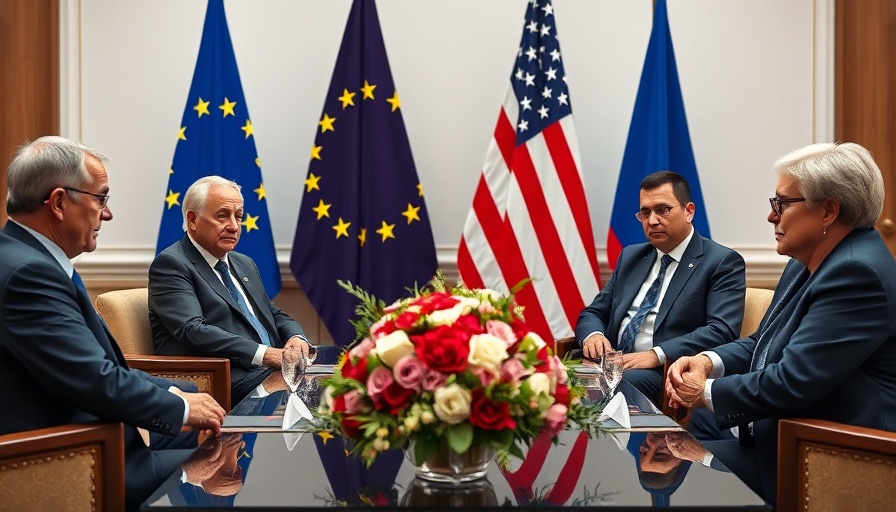
Trump's Firm Stance on Tariffs
As tensions rise between the United States and its trade partners, President Donald Trump's determination to maintain a 10% tariff on imported goods has gained heightened attention. This decision by Trump signals a bold approach to economic policy as he attempts to protect American manufacturing and jobs, even while facing significant pushback from other countries, particularly in Europe.
The Impact on International Relations
Brussels is showing signs of concession, as European leaders navigate the complexities of international trade in the shadow of Trump’s tariffs. These tariffs are not just about revenue; they indicate a shift in how nations may approach global commerce. The potential for trade wars looms, creating uncertainty that affects everything from European automotive exports to American farmers.
Reactions from the European Union
The European Union has expressed concern over the implications of sustained tariffs, arguing that they could lead to retaliatory measures that ultimately disrupt global supply chains. EU officials have cited the need for diplomacy and cooperation over conflict, highlighting how interconnected economies are in today’s global marketplace.
Broader Economic Concerns and Future Predictions
As business leaders analyze these developments, the ramifications on economic forecasts and local markets become evident. Business trends suggest a potential slowdown in growth within affected sectors, as investors remain wary of changes that could impact profits. The tech industry, particularly in places like Silicon Valley, could either suffer or benefit immensely from these shifts, depending on how effectively they adapt to new trade policies.
A Focus on Corporate Adaptation and Innovation
In a rapidly transforming economic landscape, Silicon Valley startups must innovate and strategize their business growth tactics. With a focus on sustainability and corporate governance, many are seeking partnerships that not only address regulatory challenges but also align with consumers' growing expectations for social responsibility. The startup ecosystem is evolving, requiring businesses to think critically about their roles within the economy.
Conclusion: Preparing for Challenges Ahead
Understanding these dynamic trade relations is vital for businesses and entrepreneurs, particularly in the Bay Area, as they prepare for possible disruptions stemming from these tariffs. Companies must remain agile, harnessing insights from market analysis and employment trends to navigate their future. Engaging in community-focused discussions and networks can further equip them to handle the changes ahead.
 Add Row
Add Row  Add
Add 



Write A Comment